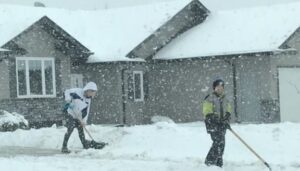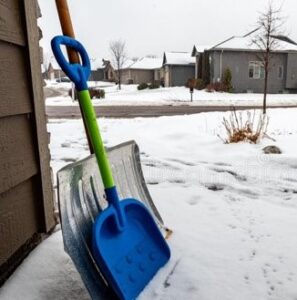
In the plant world, small seeds yield great results. So it is with the BCCPC’s Seed Grant Program,which offers financial support as well as mentoring and networking support to community organizations province-wide. Seed Grant Cycle 4: Supporting our Communities in the time of COVID-19 helped 21 community-led projects to provide meaningful programming to support psychosocial and practical needs in their communities, with a special focus on needs highlighted by the COVID-19 pandemic.
One of the grantees was NAV-Care, a program of the Kalein Centre in Nelson, BC. NAV-Care matches seniors with trained volunteers who help to access resources in the community, while providing companionship and emotional connection. Volunteers act like a helpful neighbour, regularly visiting seniors in their home with a focus on enhancing their quality of life.
Compassionate Community in Action
Murray Shunter is a NAV-Care volunteer with a long history of community connection. After 40 years of teaching, Murray retired three years ago and became a full-time paramedic (he’d been a part-time paramedic for about 15 years before that).
“I’ve been working with my client Maggie, for about a year and a half,” says Murray. “Maggie is pretty well connected to what she needs to get her health needs met, so as a NAV-Care volunteer, I help Maggie with whatever needs doing, whether it’s practical help like hiring someone to do small repairs or providing a bit of companionship on my visits.”
![]() Shovels full of caring
Shovels full of caring
One of the practical things that help seniors to get out and about during the winter months is a simple one: sidewalks clear of snow.
Murray had a brainwave: connect energetic junior high school students with snow shovels. He contacted an old colleague at the school, and the lunchtime snow removal program was born. It was such a popular program that most days, there were more student volunteers that there was snow to shovel.
The result: students have a tangible, real-world way to serve their community, and older folks have clear sidewalks as well as a clear view of young people investing in building their community.
“I’ve always liked the idea of connecting young and old, and having young people contribute to community,” says Murray. “I was so pleased to see how the snow removal idea took off and the students really got behind it.”
 Making connections
Making connections
According to Murray, often what’s needed by NAV-Care clients is quite simple, but it’s a mechanism for making deeper connections, which becomes increasingly important as we get older.
“As a community paramedic, we see a lot of isolated seniors. Loneliness is a big issue for the elderly. Maggie has friends and family nearby, but our connection is important too.”
The experience of NAV-Care shows that small ideas can have a major impact on the lives of others, and that everyone – even junior high schoolers – can help to build a compassionate community.
Vital Volunteers
Volunteers like Murray are a vital link between compassionate communities and healthcare human resources. Volunteers live and work in the community, and many have connections from other areas of their lives that may be beneficial – like Murray’s connection to the school. Volunteers are valuable assets in creating more compassionate communities.
Volunteers are essential partners in the provision of psychosocial, practical and spiritual support for people affected by serious health challenges, caregiving, end of life and grief. For example, 71% of hospice organizations report that at least 50% of volunteer hours are allocated to providing direct care and support to patients and families. Hospice staff are supported by volunteers at a nearly 1:10 ratio.

 Shovels full of caring
Shovels full of caring